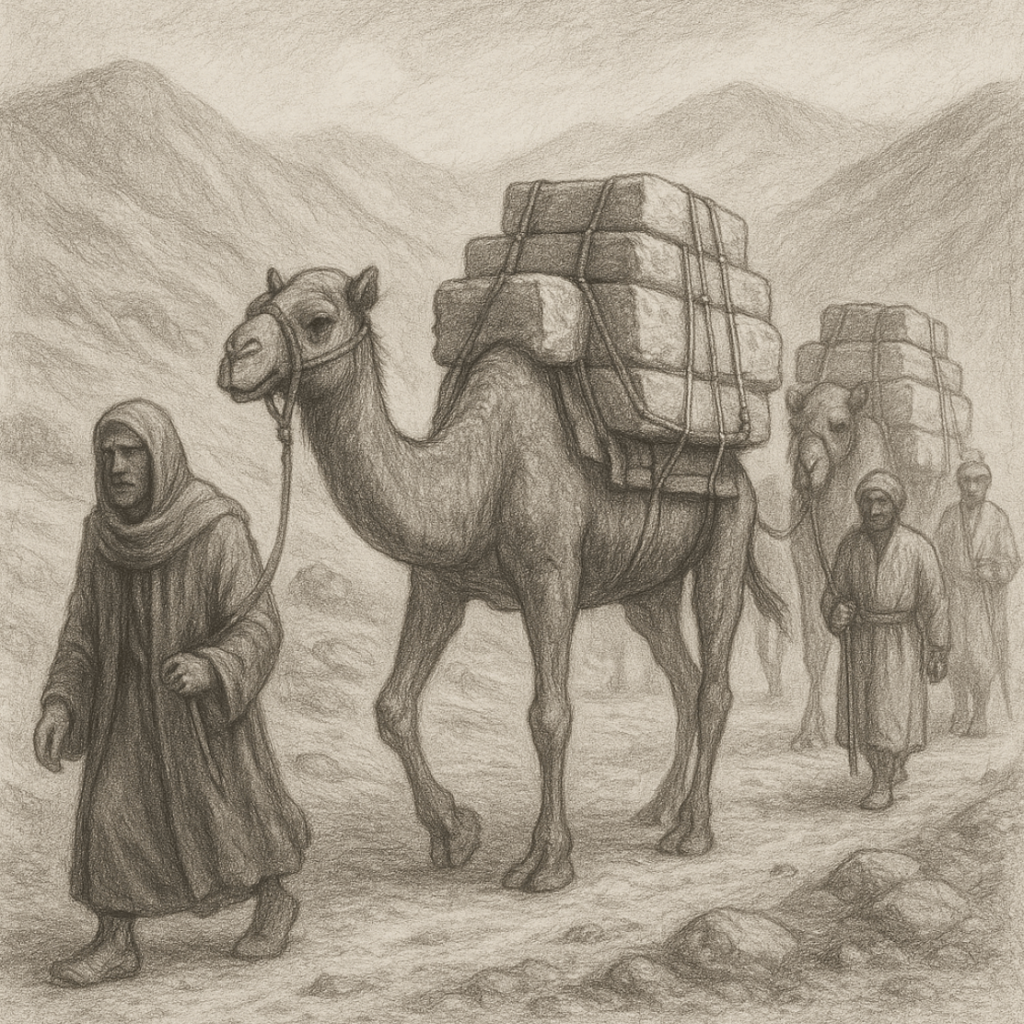
Long before motorways, there were salt roads. Caravans of camels and mules kicking up dust on long desert paths, carrying slabs of salt to distant lands. Nights in the deserts. Fire side stories under the stars. Sons growing old on voyages and old men leaving, sometimes never to return.
Salt was a meat preservative, necessary for winter survival and long voyages. It also carried immense superstitious value as an antiseptic and painkiller. Some expressions about salt continue to this day. For instance, “Is Joe worth his salt?” Geopolitical lines, borders and cities formed. Kings were made, wars erupted and empires fell in the name of salt.
In the 18th Century, at the dawn of steam technology, change was in the air. For the first time, trains snaked through the countryside and unsinkable ships like the Titanic carried scores of people and tons of goods everywhere, including stolen colonial lands. During that time, the salt industry was under siege and perhaps, itself, in need of a painkiller.
Before steam technology, salt was produced in many ways. For coastal towns, seawater was channelled into shallow ponds, where the sun evaporated the water and left the salt residue. This took weeks. But with steam, large volumes of water were pumped by engines into vacuum pans where, once again, steam was used to heat the water and make salt. With new transport systems, capable of distributing the salt in large quantities to distant lands, it lost its scarcity and commercial value. Governments stopped collecting salt as a tax, and slowly, it became what we know it to be today — a cheap white powder, important, but cheap nevertheless.
Fast forward to the 20th Century, the world was in tatters, owing to great wars, and countries were rebuilding. Driving reconstruction and economic dominance were commodities like oil and intellectual property expressed in complex government and institutions. With the rise of complex societies came the rise of knowledge workers. Doctors, lawyers, economists, and later, software engineers and graphic designers. The few who went to universities and acquired this knowledge became the new salt workers.
Like the introduction of steam technology, which undermined the scarcity of salt, we have Artificial Intelligence, which produces synthetic knowledge, thereby undermining it. Innovations like robotics and AI itself threaten to apply the knowledge, thereby undermining its utility value, at least to us. Therefore, I wager that knowledge will lose its commercial value like salt. Teachers, lawyers, and software engineers like me will cease to exist, much like the riches and politics of salt routes, which exist only in the history books today.
To the firm believers in knowledge work and the careerists, I might be accused of being a bit salty.
If it is your first time on my website and you found this piece insightful, consider exploring more posts here → Newsletters
If you want a firm introduction to business fundamentals in a more organised format, I created a space here → Business Fundamentals


See clearly the invisible forces that drive business performance—10 video sessions.